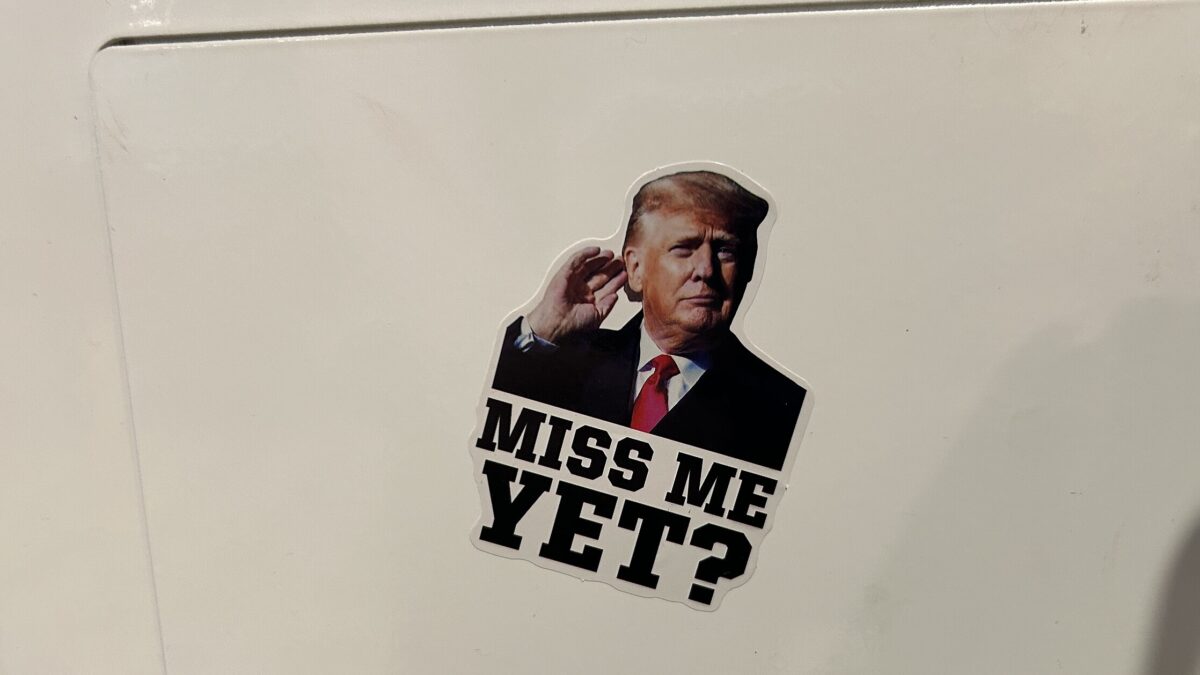
Some have said Donald Trump’s decision to attack Heidi Cruz, the wife of Sen. Ted Cruz, on Twitter marks a new low in a campaign marked by the lowest level of political discourse in American politics ever.
Lyin' Ted Cruz just used a picture of Melania from a G.Q. shoot in his ad. Be careful, Lyin' Ted, or I will spill the beans on your wife!
— Donald J. Trump (@realDonaldTrump) March 23, 2016
Pic of your wife not from us. Donald, if you try to attack Heidi, you're more of a coward than I thought. #classless https://t.co/0QpKSnjgnE
— Ted Cruz (@tedcruz) March 23, 2016
Donald, real men don't attack women. Your wife is lovely, and Heidi is the love of my life. https://t.co/pprXhIMzUT
— Ted Cruz (@tedcruz) March 24, 2016
Even before Trump and Cruz got into a Twitter spat over one another’s wives, comedian Stephen Colbert asserted Trump’s comments about his private parts at the GOP debate in Detroit, Michigan, showed political discourse was now buried lower than the dinosaurs.
“For those of you that have been following American democracy for the past 240 years, we have officially hit a new low,” he said.
The level of discourse, which at one point The New York Times called a “war of playground insults,” is certainly at a saddeningly low level. What American wants the people vying to be our next president going around insulting competitors’ hair, reporters’ menstrual cycles, or the attractiveness of one another’s wives?
It was a high point in the 2008 presidential campaign when then-Democratic presidential nominee Barack Obama said discussion of Bristol Palin’s pregnancy, daughter of then-Republican vice presidential candidate Sarah Palin, was off-limits.
“Let me be as clear as possible,” Obama said. “I think people’s families are off-limits, and people’s children are especially off-limits. This shouldn’t be part of our politics.”
But even if we believe that the political discourse of this election is unacceptable—especially if compared to the last few presidential elections—we’re ignoring the strident and even violent discourse of the past. Anyone who has paid attention to the past 240 years of American government would know that political discourse in America actually hasn’t hit a new low. Historically, American politics have been even more rancorous than they are today.
Slash and Burn Politics Is Not at All Unprecedented
Much has been said about the Make America Awesome PAC’s decision to run an ad with a naked photo of Trump’s wife, Melania, aimed at dissuading Mormons in Utah from voting for Trump in the Republican primary last Tuesday. But has everyone forgotten that the Reynolds affair in the second act of the Broadway smash-hit “Hamilton” actually happened?
Personal attacks of the most private nature have been a part of American politics since the founding of our republic. In 1797, sitting Vice President Thomas Jefferson spread rumors about former Secretary of Treasury Alexander Hamilton’s nine-month affair with Maria Reynolds, and later that year journalist and pamphleteer James Callender got a hold of private letters between Hamilton and Reynolds and published them in a pamphlet about Hamilton’s affair.
Many Americans were shocked by the scandal, and Hamilton was furious and embarrassed. Hamilton ended up apologizing for his actions, but his reputation was damaged. Later, when then-president Jefferson denied Callender an appointment as postmaster, he printed information of Jefferson’s alleged affair with Sally Hemings.
In 1856, a couple of days after Massachusetts Sen. Charles Sumner gave an impassioned speech against expanding slavery, he was beaten unconscious on the Senate floor by South Carolina Rep. Preston Brooks. In the speech that provoked the attack, Sumner had called a fellow senator, Democrat Stephen Douglas of Illinois, a “noise-some, squat, and nameless animal.”
During the presidential election of 1920, an opponent accused Republican nominee Warren G. Harding of being one-sixteenth black. At the time this claim was a major insult, and Harding’s campaign manager responded that Harding was “a blue-eyed stock from New England and Pennsylvania, the finest pioneer blood.”
In 1964, Democratic presidential incumbent Lyndon B. Johnson ran ads associating Republican nominee Barry Goldwater with the Ku Klux Klan, even while Goldwater publicly condemned the group.
It’s Possible to Govern Well Amid Rhetorical Gunfire
The level of political discourse has certainly been low this election, even depressingly so. And no generation should accept the ad hominem and even violent attacks candidates make during an election cycle. But we can’t say there is anything “new” about this low. It’s just the present low in an American political history filled with lows.
This isn’t a Republicans or Democrats problem, either. It a problem with people not only forgetting their history, but also losing sight of decency. Instead of forgetting our history, let’s learn from it. Personal attacks will never be acceptable political discourse, yet they will probably never going to go away. We should look past them and attempt prudent governance anyway.
American discourse at the time of the drafting of the Constitution was just as strident as it is today, yet America’s founding fathers produced the best constitution the world had ever seen. Hopefully we can learn from our founding fathers and govern effectively in spite of the poisonous rhetoric of this election.








